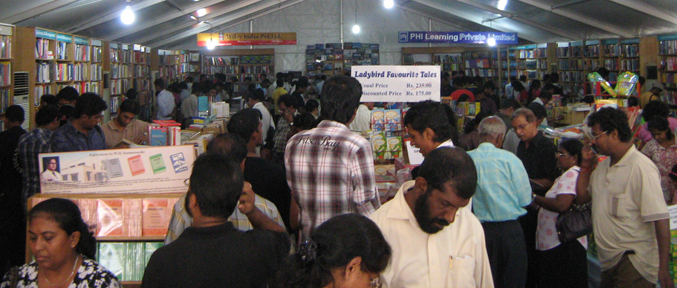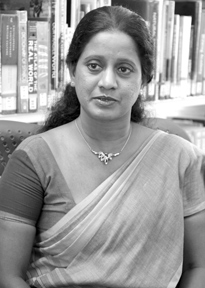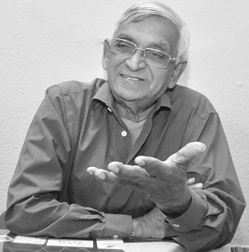|
National
Literacy Month:
Celebrating the power of the written word
 September is National Literacy Month, a month that both reinforces
the value of reading and writing and reminds us the two fundamental
props of life remain elusive to hundreds of millions of people across
the world. UNESCO recognizes literacy as a fundamental human right and
the foundation for lifelong learning, as an essential tool for human
development in its ability to transform lives and an instrument of
empowerment for individuals, families, and societies alike, and has for
over 65 years worked to ensure that literacy remains a priority on
national and international agendas. September is National Literacy Month, a month that both reinforces
the value of reading and writing and reminds us the two fundamental
props of life remain elusive to hundreds of millions of people across
the world. UNESCO recognizes literacy as a fundamental human right and
the foundation for lifelong learning, as an essential tool for human
development in its ability to transform lives and an instrument of
empowerment for individuals, families, and societies alike, and has for
over 65 years worked to ensure that literacy remains a priority on
national and international agendas.
The Literacy Month was introduced in Sri Lanka by S.W.R.D.
Bandaranaike in September 1956 to address the need for the upsurge of
literature, following language policy changes. The Month has over the
years evolved into a major calendar event, currently spearheaded by the
Sri Lanka Book Publishers' Association, which was formed in 1984.
The highlight of this year's National Literacy Month event is the
Swarna Pushpaka Award, which will see Rs. 500,000 being awarded for the
best novel published this year. Though an annual event, this year's
prize money is the biggest to be awarded by any organization for Sinhala
novels. Five semi-finalists will also be awarded Rs. 50,000 each. Former
Chief Justice Shirani Bandaranayake will be the Chief Guest at this
year's award ceremony.
The Colombo International Book Fair at the BMICH, which had its
inception in 1999, is a much looked forward to event by all book lovers
in the country. It is already being recognized as a landmark event in
South Asia. The Book Fair begins on September 18 with over 400 stalls.
Close to 50 foreign publishers along with scores of local publishers,
partners and bookshop owners are expected to participate in the 10-day
Fair.
Over 1.5 million people are expected to attend the Book Fair. Prime
Minister Ranil Wickremesinghe will be the Chief Guest at the opening
ceremony on September 18.
Here we explore the essence of the National Literacy Month, the
Colombo International Book Fair and the importance of literacy with,
Vijitha Yapa, former President of the Sri Lanka Book Publishers'
Association and Siroma Benaragama, Manager, Library & Information
Services, British Council, Colombo
Thirst for books is very high
|

Siroma Benaragama
Pic: by Chinthaka Kumarasinghe |
Q: Could you explain the importance of the Literacy Month and
how it is relevant to Sri Lanka?
A: The thirst for books, knowledge and education in Sri Lanka
is very high. Sri Lanka’s population has the highest literacy rate of
98% in the South Asia region.
It is vital that we make the general public aware of the importance
of literacy.
Nelson Mandela once said ‘A reading nation is a winning nation’.
During the month of literacy, Colombo International Book Fair has now
become an annual event, which gives the opportunity for book lovers to
visit and purchase books at a discounted price.
In addition, it also provides the opportunity for many local and
international institutions related to book trade to promote their
publications and other services.
The British Council will also be participating at the Colombo
International Book Fair and this is mainly to make the general public
aware of the products and services we offer in our libraries, teaching
centres and examinations in developing skills in English Language.
In addition we have observed that people who are interested in
reading do register with us as library members during the fair.
Q: How do you encourage the reading habit in Sri Lanka?
A: The British Council is the United Kingdom’s International
organisation for educational opportunities and cultural relations. We
have three British Council libraries in Colombo, Kandy and Jaffna and
have partner teaching centres in Galle and Matara. A total of more than
25,000 members are registered with us in using our physical (more than
75,000 items – books, DVDs, CDs, periodicals, etc.) and digital
resources where we have more than 100,000 e-books and nearly 14,000
e-journals.
We play a major role in encouraging the reading habit among children.
We have events and activities to educate parents regarding the
importance of reading to a child and also developing the reading habit
among children, so that they start reading at an early age. We have
story telling sessions to support the parent and the child, so that they
know how to relate a story in an interesting manner. Parents can play a
crucial role in helping a child become a successful, fluent and eager
reader. We get the children involved in our reading programs.
These have been designed in a way that they get influenced to read
more due to the competition among children. We have been able to use
expertise of our UK qualified teachers to inculcate the reading habit
among children, by making it an enjoyable experience for children. This
experience itself encourages them to read more confidently even though
they are not used to reading material in English and this will be the
main reason for their next visit to our libraries at an early age.
Q: How does British Council make reading a meaningful exercise
for students?
A: We have our annual reading programs with different themes
every year where we run it during school holidays in August and
December.
In addition we have also started carrying out these Reading programs
in schools mainly due to the requests we’ve been getting through schools
where we get children to participate in our program and get a
certificate and a medal at the end of our program. This has become very
popular among children due to the nature of the reading program – every
book they complete they get entitled for a small gift which influences
reading the next book.
Q: Do you try to collaborate with the higher education
institutes here to improve the quality of research in Sri Lanka?
A: We have already started making undergraduates and postgraduate
students aware of the importance of referring to reliable resources,
which would help them to avoid plagiarism and also regarding our on-line
resources which consists of more than 110,000 e-books and nearly 14,000
e-journals, which would be beneficial for their research studies.
Currently we’re working with Research Institutes in the UK in getting
access to their on-line research material which could be beneficial for
everyone in the research field for their studies. This will also help
them in avoiding plagiarism.
It is one big giant bookshop
|

Vijitha Yapa Pic: by Sumanachandra Ariyawansa |
Vijitha Yapa, former (founding) editor of The
Island and the Sunday Times, the former President of the Sri Lanka Book
Publishers’ Association, and owner Vijitha Yapa Publications, the
largest publisher of books in English in Sri Lanka.
“We promote Sri Lankan books in other countries such as the London
Book Fair, Frankfurt Book Fair and the South Korean Book Fair. These are
events where we go and meet the respective people and try to see how we
can do business because I think Sri Lanka should not be restricted to
just Sri Lanka because we have a lot of talent and opportunities.
“The money that is collected at the Colombo International Book Fair
is used to award scholarships to poor students who have passed the
Advanced Level examination but who do not have the money to study in
university. We charge a very nominal entrance fee of Rs. 20. Students
and children are allowed in free as well as the clergy.
“Vijitha Yapa Publications is the largest publisher of books in
English in Sri Lanka. There again we are trying to promote these books
overseas. So we have accounts in Amazon and various other places where
these books are actively promoted. The response to this means certain
books have been very successful. For example, Road From Elephant Pass by
Nihal De Silva is now running in 21 editions and that is a record for
any book in Sri Lanka in the English language. It was awarded the
Gratiaen Prize in 2003 and also the National State Award for literature.
This shows that there is a thirst for English Literature in Sri Lanka.
“The Colombo International Book Fair is important in promoting the
reading habit in Sri Lanka. We have various ways in which we go into our
schools to assist with their programs and to assist with school
libraries. In promoting the reading habit, which is very important, our
battle is with the Internet. E-books are not very popular in Sri Lanka
at the moment, mostly because of the cost involved. It is less expensive
to purchase an English fiction novel in our bookshops than to download
it on the Internet.
“The exhibitions are also held in various schools with discounts so
that children are encouraged to buy. And there are special prices which
are given to the libraries and to the universities so that they can get
the latest books at good prices.
“In the 1970s students had to take all their exams in their mother
tongue. And this created various problems because the communication
between children who speak Sinhala, Tamil and English deteriorated. When
I was in school I had friends and we would converse in English. But that
changed and that led to a lot of problems in the country such as
miscommunication and led to the terrible war. But now the government has
said that English is compulsory in schools. So that is a very important
aspect and it will take a little time but I think in the coming years
that will change in terms of communication also. And the fact that there
is a greater demand for books in English is an indication that attitudes
are changing and that books are a tremendous means of communication and
understanding and building bridges. So the type of literature that has
emerged especially because of the war has meant that there is a greater
understanding of the problems that are associated with the communities.
“We don’t have huge bookshops in Sri Lanka like for example in
England.
In Oxford Street there are forty or fifty thousand feet of space
available for book stores but this is not available in South Asia. At
the Book Fair, for the first time in Sri Lanka we are having 400 stalls
with hundreds of publishers from all over the world displaying their
books. So it is one big giant bookshop and there are discounts given in
an attempt to encourage reading.
There are also other programs for children who can write, who can
draw and we facilitate inter-communication between the publishers and
the authors. We organize special seminars for them and there are book
launches. It’s actually not just a book exhibition, it is a book
festival. And this year we have extended it to ten days which includes
two weekends.” |

